WE ARE WHAT WE DON’T EAT
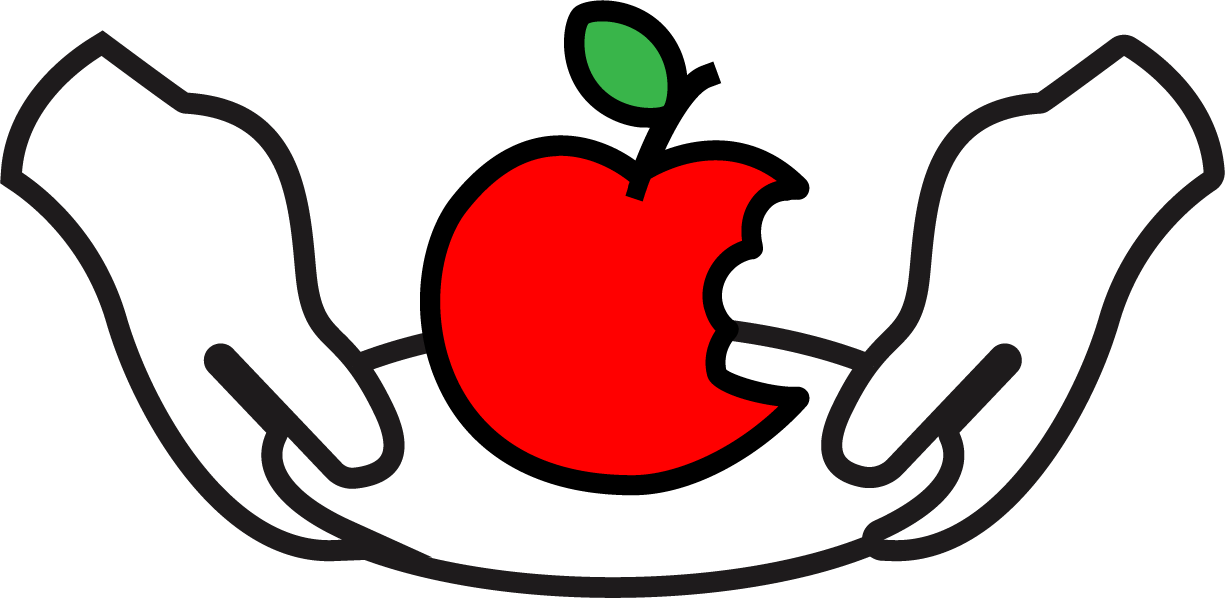
a series of interventions in RISD’s dining halls to significantly increase composting and improve awareness about food waste, done as a work-study with RISD Dining.
THE PROBLEM:

1
Composting facilities already existed at RISD
2
but a weak visual presence
3
meant those facilities went underutilized
Composting facilities already existed at RISD
2
but a weak visual presence
3
meant those facilities went underutilized
Using enviromental observation, I found that of students with compostable food waste:
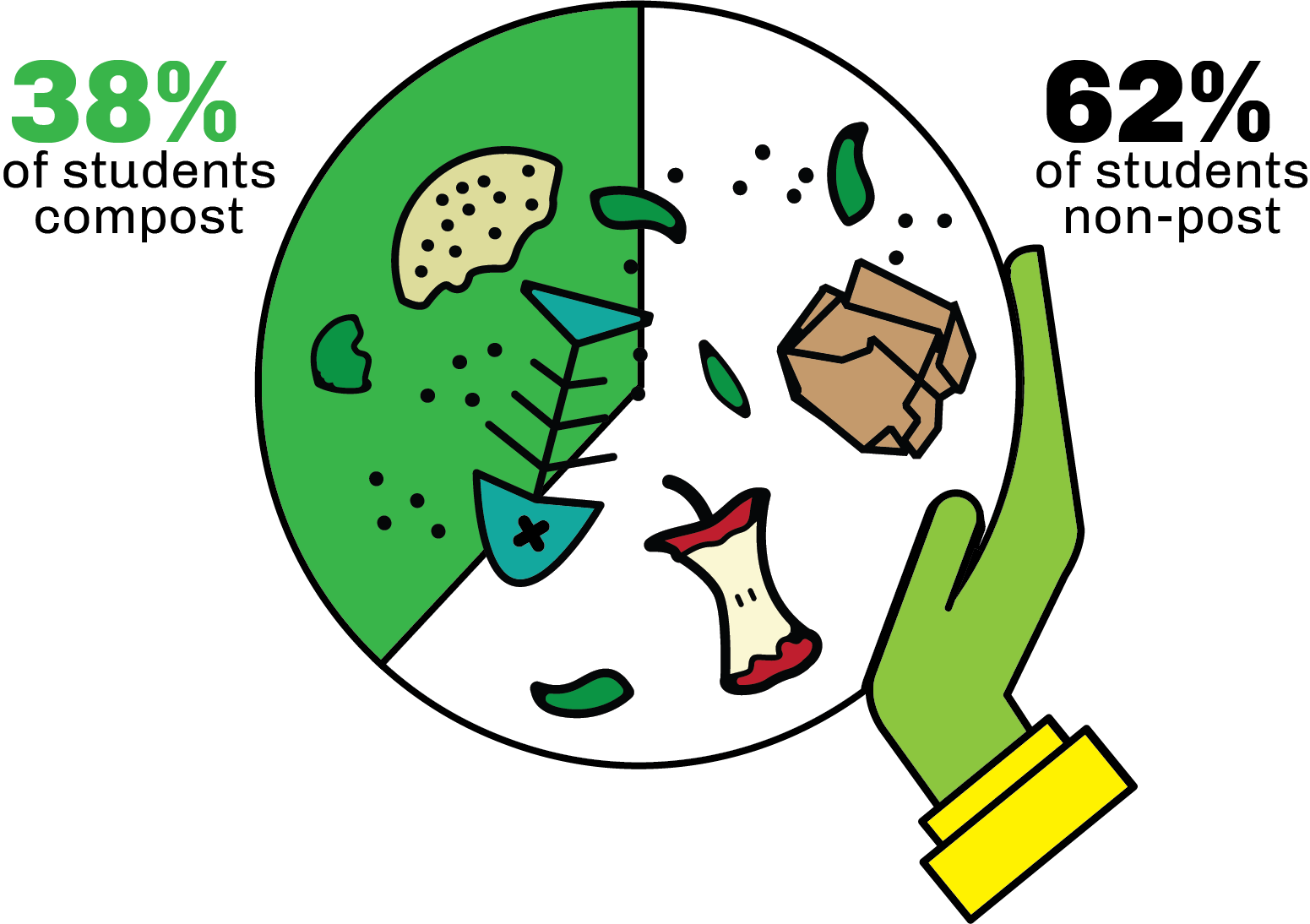
and user surveys revealed confusion and a lack of awareness about compost and food waste:
“I didn’t know we had compost”
“my eyes are usually bigger than my stomach”
“I just want to avoid spending time in there [the food waste area]”
so after some brainstorming...

I worked closely with RISD Dining Services management to implement...
SOLUTION v1
a). awareness campaign

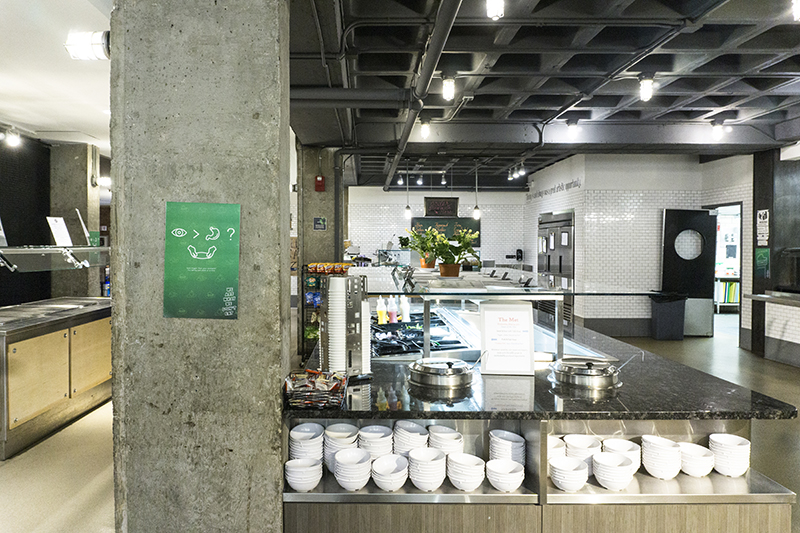
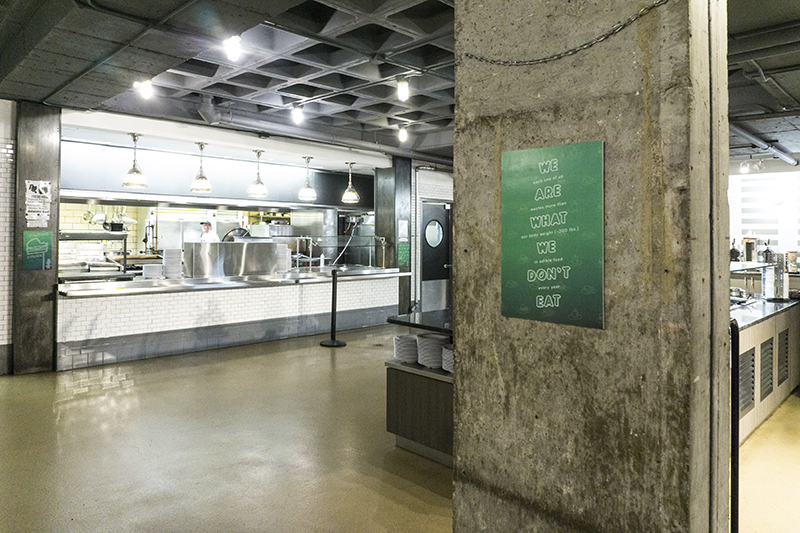

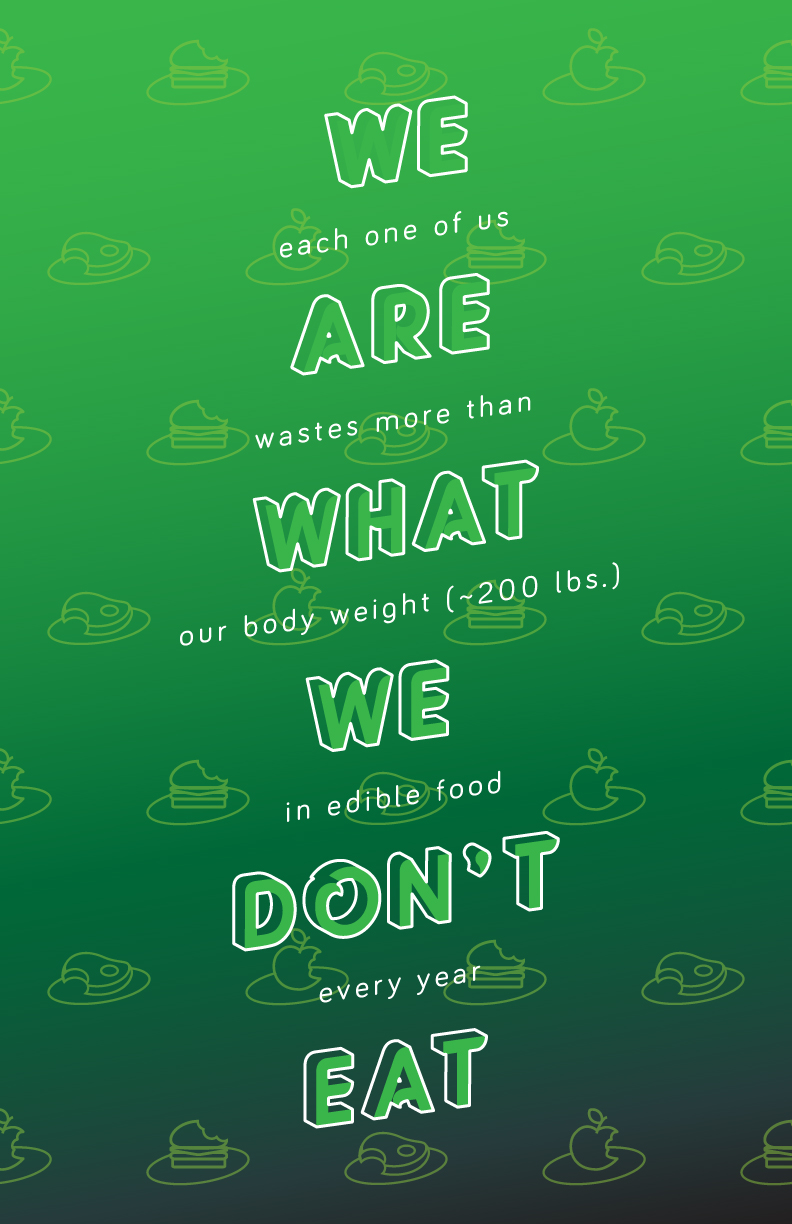
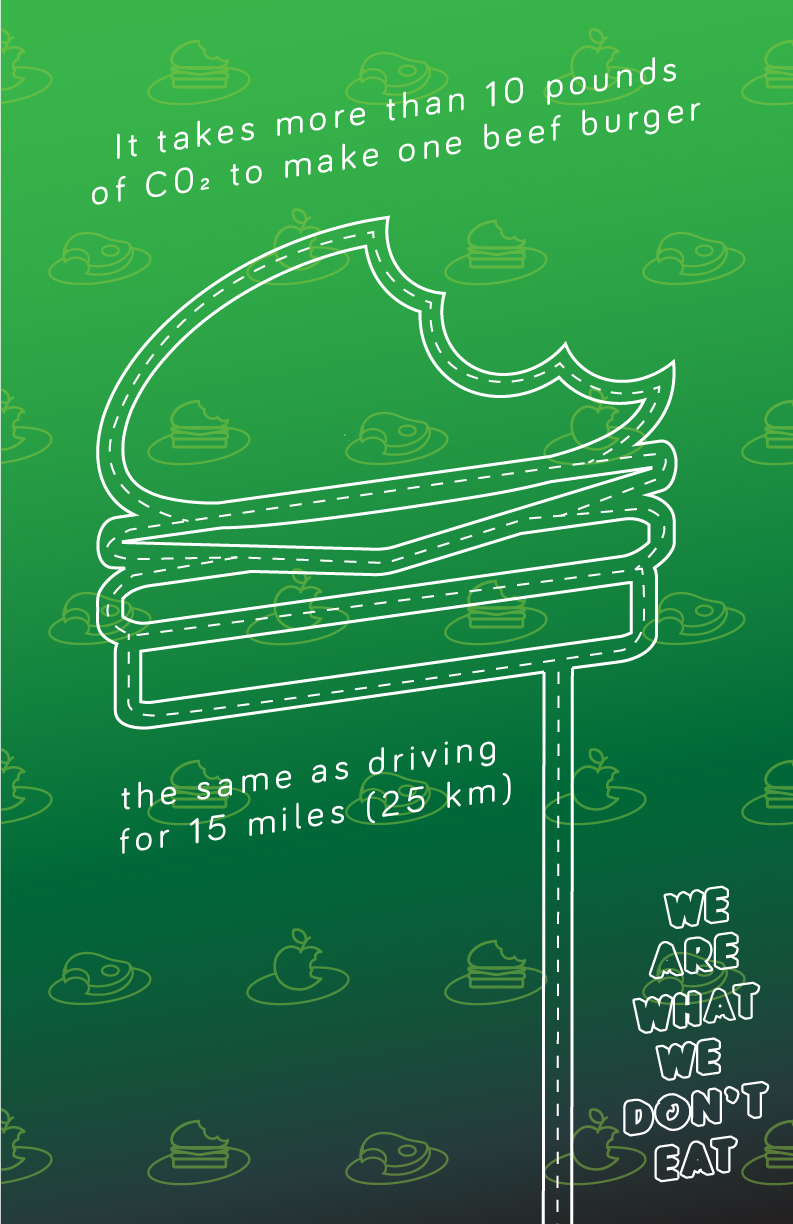

b). food waste area redesign
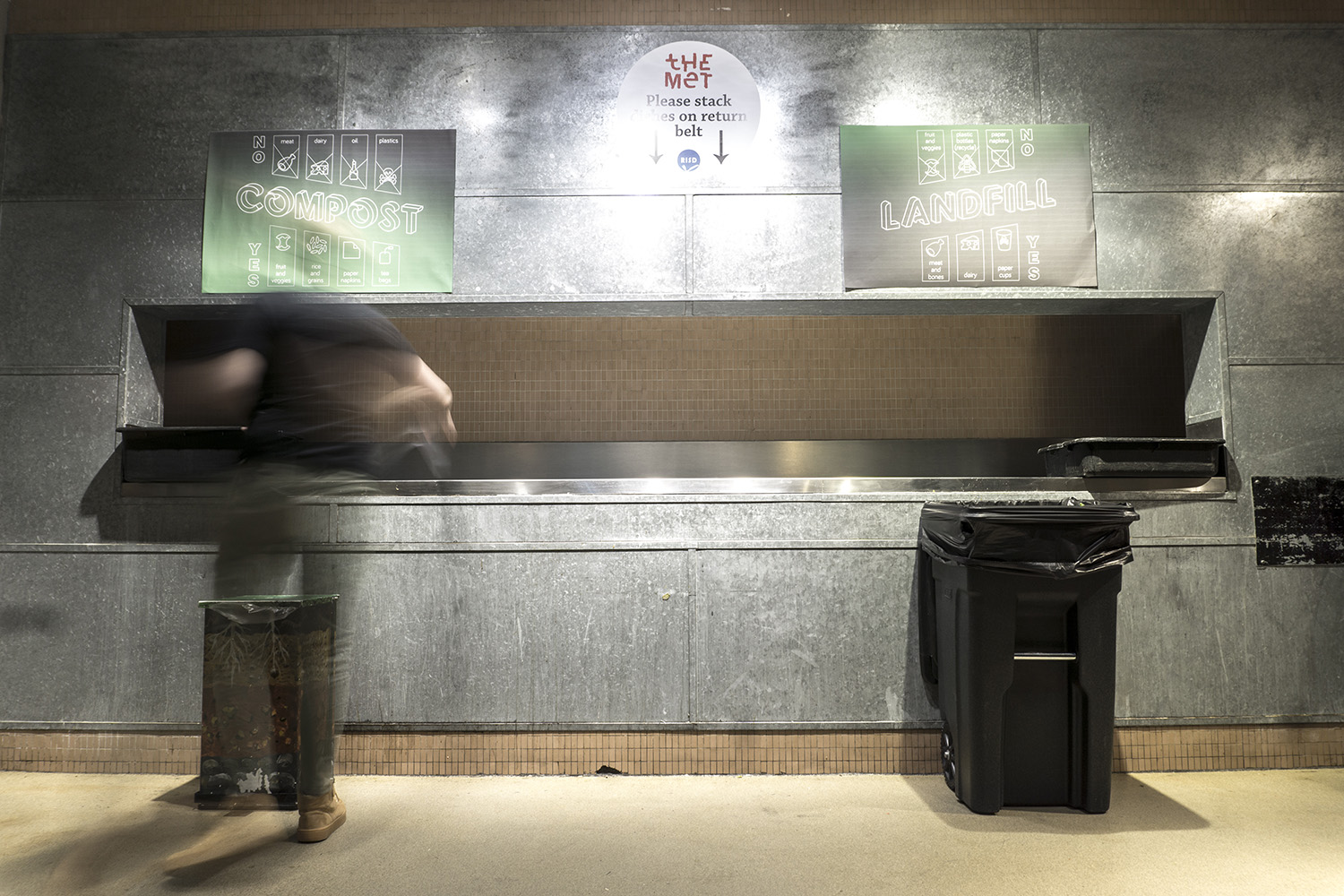
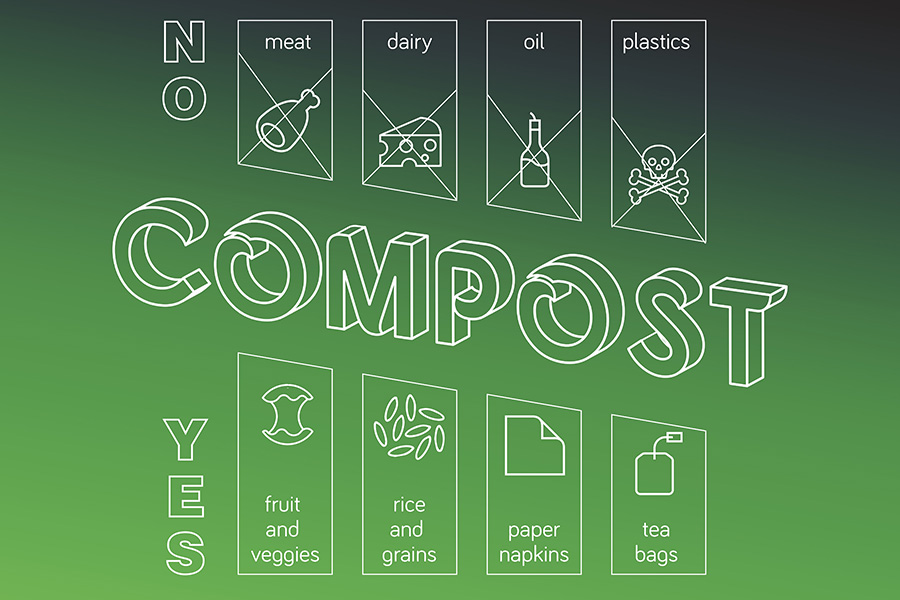

But upon reviewing the efficacy of Solution v1 after a semester of implementation, I found...
three opportunities for improvement:

food waste
sorting
sorting between compostables (fruit, veggies, napkins) and non-compostables (dairy, meat, oil) was still overwhelming for students
 poster
posterfatigue
students are exposed to a lot of posters - making a standard awareness campaign only marginally valuable
 maintenance
maintenance“creep”
a lack of communication with janitorial staff meant that the intended structure of the food waste area was not mantained
With these constraints in mind, I implemented...
SOLUTION v2
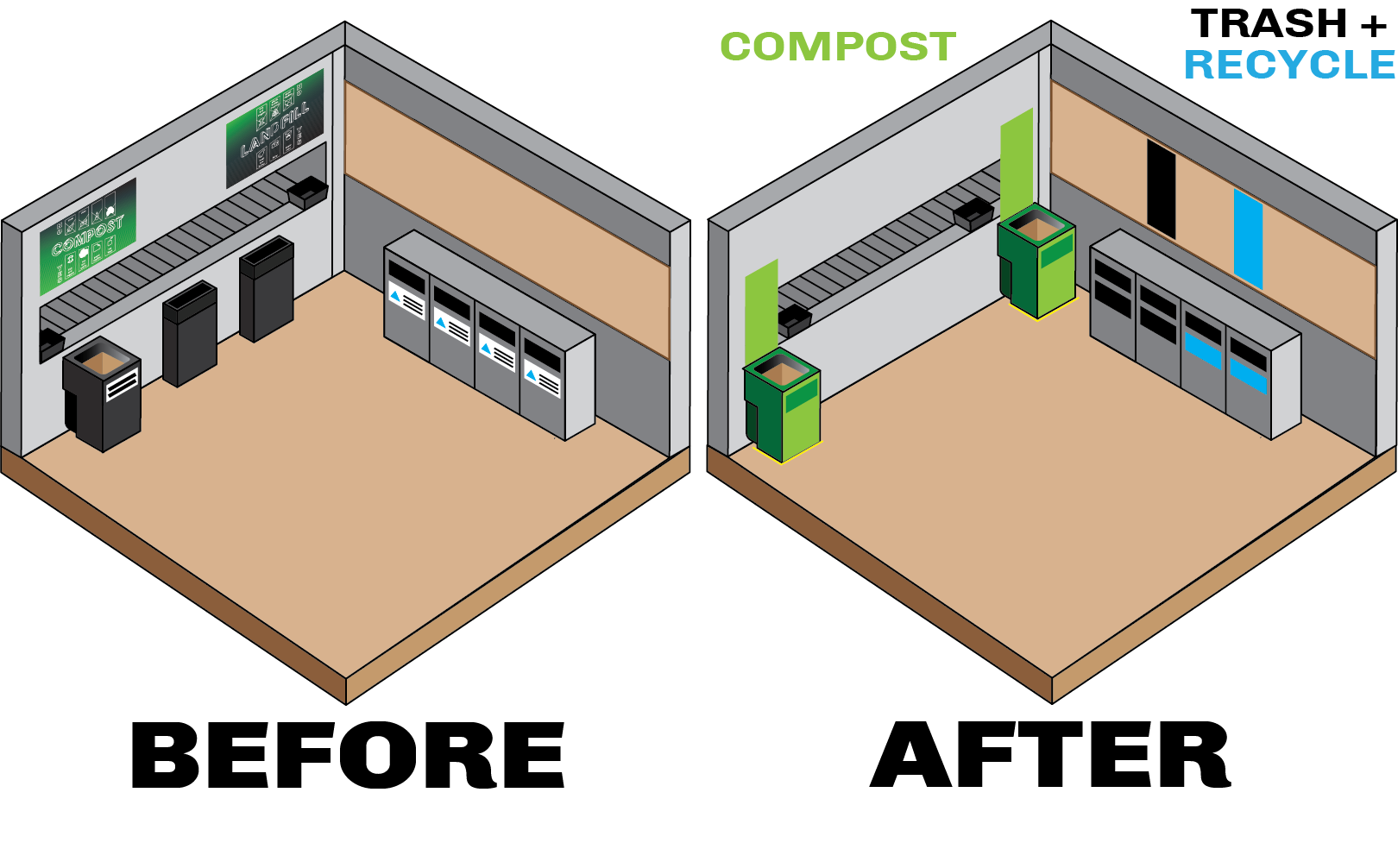
a). food waste area redux


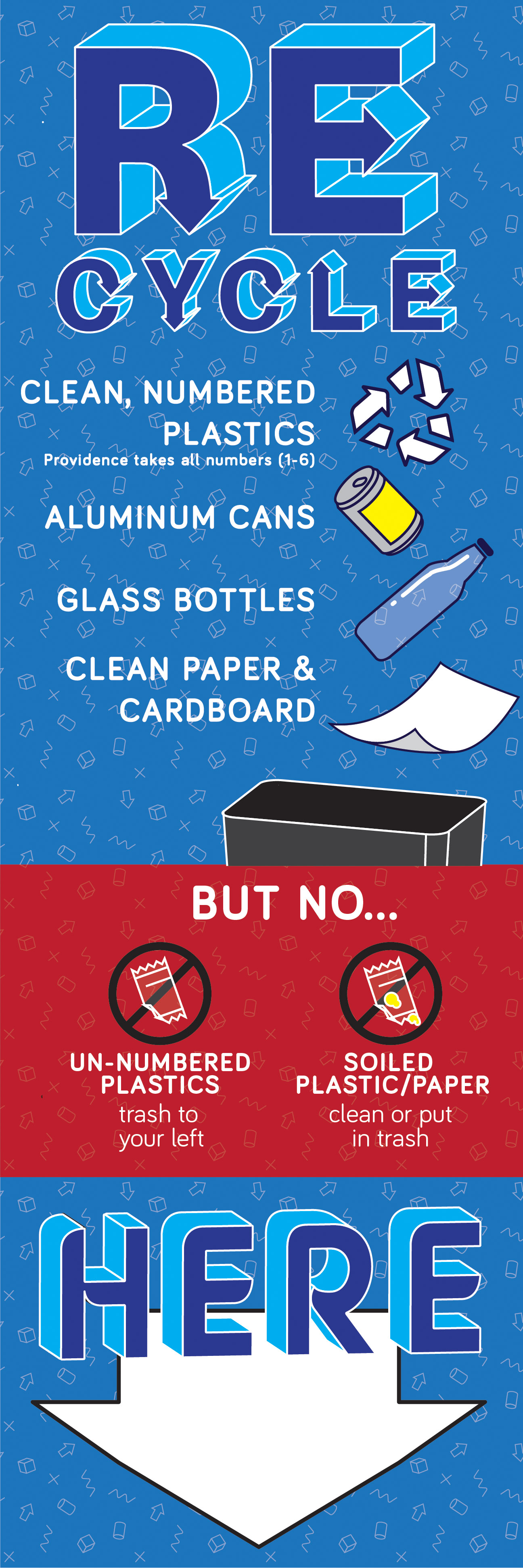


b). interactive awareness campaign
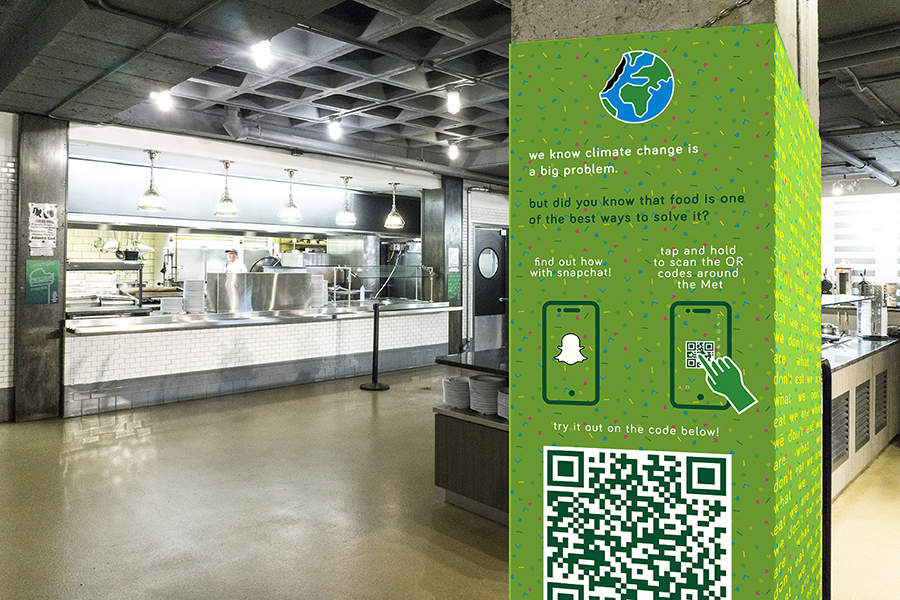
QR Code scavenger hunt with interactive, actionable information
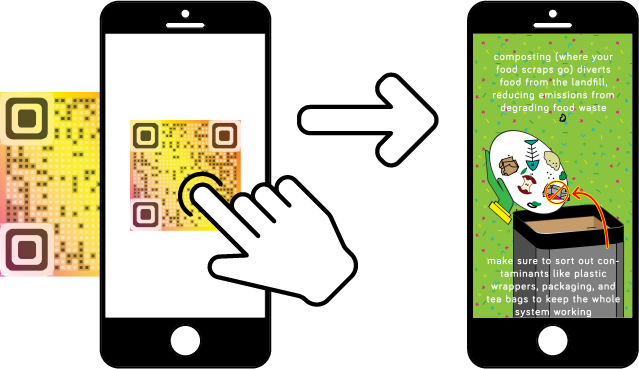

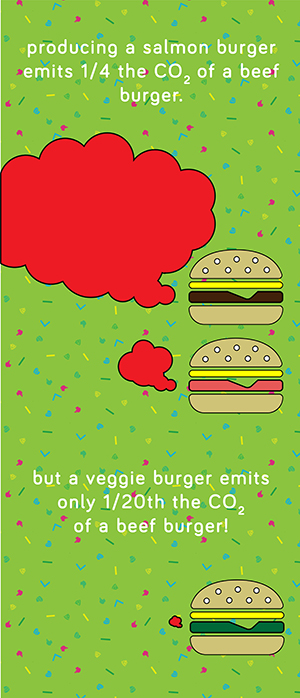
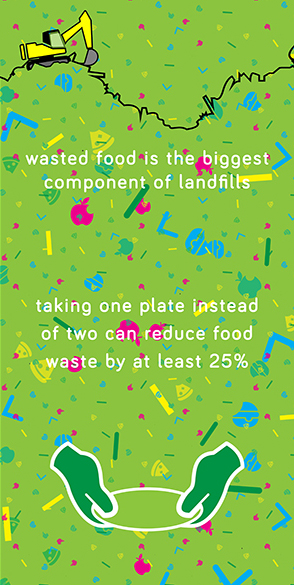
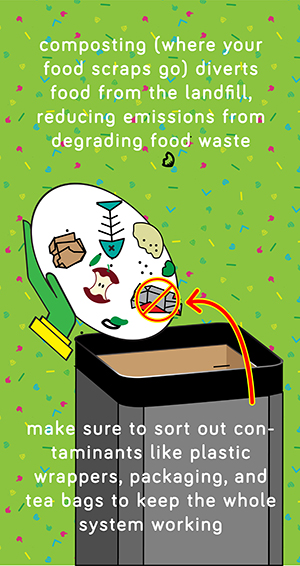
postscript
As a result of the We Are What We Don’t Eat Campaign, RISD Dining estimated a ~90% composting rate for food waste in 2019, compared to a measured 38% before.

